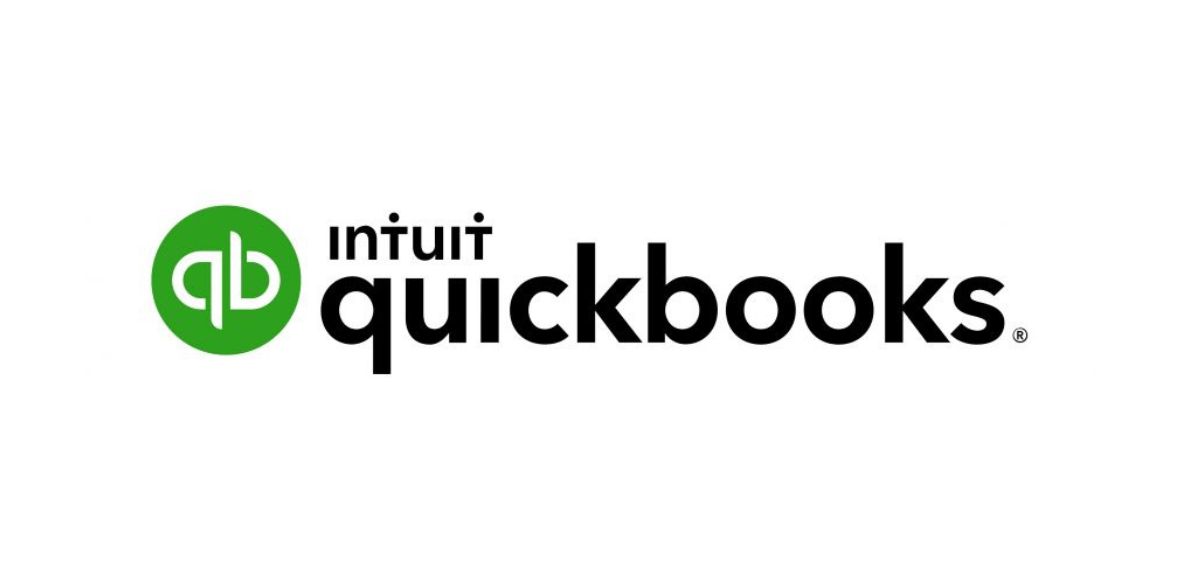
by Inez Kim July 13, 2024
As property management businesses strive to optimize their operations, integrating industry-leading tools like Property Management Software QuickBooks integration becomes crucial. When paired with robust property management systems, QuickBooks, renowned for its comprehensive accounting capabilities, offers a dynamic solution that streamlines financial processes and enhances operational effectiveness.
This article delves into the transformative impact of integrating QuickBooks with your property management software, exploring the myriad benefits, key features, and practical applications that empower property managers to manage their portfolios more effectively and drive strategic decision-making and sustainable growth.
Join us as we uncover how this powerful synergy can revolutionize your property management practices, ensuring precision, efficiency, and scalability.
In This Article
ToggleWhat is QuickBooks?
QuickBooks, crafted by Intuit, is a premier accounting software that predominantly serves small- to medium-sized businesses. Initially a desktop application, QuickBooks has transitioned into a comprehensive cloud-based platform, enhancing its accessibility and versatility. This evolution allows businesses to manage various financial operations seamlessly from any location. The software includes vital tools for payroll processing, managing invoices, and tracking expenses, all while ensuring rigorous compliance with financial regulations. Its adaptability to support diverse business needs and its continual updates make QuickBooks indispensable for robust financial management, streamlining complex processes, and contributing to the overall efficiency and financial health of businesses.
Can You Use QuickBooks for Property Management?
QuickBooks is renowned for its robust accounting capabilities, primarily catering to small and medium-sized businesses. However, its flexibility and extensive feature set also make it a viable option for property management. While not initially designed for this industry, QuickBooks’ adaptability allows it to effectively meet the specialized needs of property management. Here’s a detailed look at how property managers can leverage QuickBooks to meet their specific needs:
- Managing Tenant Ledgers
QuickBooks can be configured to manage individual tenant ledgers efficiently. Each tenant can be set up as a ‘customer’ in the system, allowing property managers to track rental payments, additional charges (like utilities or parking fees), and accurately refund each tenant. This structured approach not only simplifies the financial oversight of multiple tenants but also ensures that all transactions are meticulously recorded and easily accessible for review or reporting purposes.
- Tracking Rental Income
The software allows for systematic tracking of rental income. Property managers can set up recurring invoices for each tenant, ensuring that rental charges are billed consistently and on time. QuickBooks also supports automated reminders and late fee calculations, which can help maintain a steady flow of rental income and minimize delinquencies. This functionality is crucial for maintaining cash flow and financial stability in property management.
- Overseeing Maintenance Costs
Maintenance and repair costs can be a significant expense in property management. QuickBooks helps track these costs effectively by allowing property managers to categorize each expense under specific properties or units. This detailed categorization aids in monitoring the maintenance budget for each property, providing insights into which properties are more cost-intensive and might require proactive maintenance strategies to reduce long-term expenses.
- Handling Deposits and Financial Transactions
Handling security deposits, advance rents, and other financial transactions are streamlined with QuickBooks. The software can manage separate accounts for security deposits to ensure compliance with regulatory requirements that often require such funds to be held separately from operating funds. Furthermore, all transactions can be tagged to specific tenants and properties, ensuring that financial records are always up-to-date and accurate, which is crucial during financial audits or disputes.
- Customizations and Integrations
One of the strengths of QuickBooks is its ability to integrate with other software tools and platforms. For property management, this means it can be linked with property management databases, online payment systems, and other tools that manage property listings or maintenance requests. These integrations can significantly enhance the functionality of QuickBooks, making it a more comprehensive tool tailored to the complex needs of property management.
By utilizing QuickBooks’ robust features and its ability to integrate with other tools, property managers can create a highly efficient and reliable system for managing all aspects of property management. This not only improves operational efficiency but also provides detailed financial insights that are essential for successful property management.
The Importance of QuickBooks Integration
Integrating QuickBooks with Property Management Software QuickBooks brings a cohesive financial and operational management approach. This integration ensures that all financial data is synchronized between the two platforms, reducing the need for manual data entry and minimizing the risk of errors. It provides real-time financial insights, which are critical for making informed business decisions and maintaining compliance with financial regulations in property management.
Benefits of Using Property Management Software with QuickBooks Integration
Integrating QuickBooks with property management software provides various operational and strategic benefits. Here’s a detailed elaboration of each point:
Improved Accuracy and Reduced Errors
The integration of QuickBooks with property management software significantly enhances the accuracy of financial data. Automating the data entry process greatly minimizes the risk of human errors such as duplicate entries, missed entries, and transcription errors.
This ensures that financial records are consistent, accurate, and always up-to-date. Automation also facilitates compliance with accounting standards and financial regulations, reducing the likelihood of costly financial discrepancies or the need for time-consuming corrections later.
Increased Efficiency
The synergy between QuickBooks and property management software streamlines numerous administrative workflows. For instance, rent collection, invoice generation, and expense tracking become more efficient. This integration eliminates the need for manual data entry across separate platforms, thereby saving time and reducing staff workload.
The time saved can then be redirected to other critical areas such as tenant relations, property maintenance, or business development, ultimately enhancing overall productivity and operational efficiency.
Enhanced Financial Visibility
With QuickBooks integrated into your property management software, you can access real-time financial data. This integration provides a holistic view of the financial health of your property portfolio at any given moment. Property managers can track income, expenses, profit margins, and other financial metrics easily.
Such comprehensive visibility not only helps monitor the financial performance of individual properties but also assists in overseeing the overall financial status of the entire portfolio. This enhanced visibility is crucial for identifying financial trends, managing cash flows effectively, and spotting potential financial issues before they escalate.
Better Decision-Making
Access to detailed and accurate financial reports is critical for making informed business decisions. With QuickBooks integration, property managers can easily generate various financial reports, such as profit and loss statements, balance sheets, and cash flow statements.
These reports provide valuable insights into the financial implications of various management decisions. With this information, managers can make strategic choices, such as adjusting rental rates, planning major renovations, or expanding their property portfolio, based on solid financial data rather than intuition or incomplete information.
Scalability
As a property management business grows, its financial transactions become more numerous and complex. Property Management Software QuickBooks integration is highly scalable, capable of handling increased transaction volumes and accommodating the evolving needs of a growing business.
Whether adding more properties, handling more complex property management scenarios, or managing an increase in tenant interactions, the integrated system can adjust and scale accordingly. This scalability ensures that the property management software continues to serve the business effectively without the need for frequent system upgrades or replacements.
Integrating Property Management Software QuickBooks streamlines operational processes and enhances strategic decision-making capabilities. It supports business growth and adaptation through scalable, accurate, and efficient financial management tools. This integration is a strategic asset for any property management business looking to optimize its operations and ensure robust financial health.
Key Features to Look for in Property Management Software with QuickBooks Integration
When selecting property management software with QuickBooks integration, it’s important to prioritize features that enhance efficiency, maintain financial accuracy, and offer customizable control over your property management operations. Here’s a detailed elaboration on each of the key features you should consider:
Seamless Integration
Seamless data synchronization is the primary feature to seek in property management software with Property Management Software QuickBooks integration. This ensures that all financial data, including payments, expenses, and tenant ledgers, are consistently updated in real-time between QuickBooks and the property management software. The benefits of seamless integration include:
Data Integrity: Ensures that financial records are accurate and reflect the current financial status, preventing discrepancies that can lead to serious accounting errors.
Reliability: Increases the trustworthiness of the financial data, which is crucial for making informed business decisions and for auditing purposes.
Efficiency: Saves time and reduces manual data entry, minimizing the risk of human error and freeing up resources for other tasks.
Comprehensive Financial Management
A robust property management software should offer comprehensive tools to manage all financial aspects:
Rent Tracking: Automatically tracks payment histories, due dates, and deposits and integrates these details with tenant management features.
Expense Management: Simplifies the recording and categorization of property-related expenses, which can then be automatically updated in QuickBooks.
Financial Forecasting: This uses historical data to forecast future financial scenarios, helping in budgeting and financial planning and thereby ensuring that the property remains profitable.
Customizable Reporting and Analytics
Customizable reports and analytics are crucial for adapting the software to the specific needs of property management:
Tailored Financial Insights: Allows you to generate reports on key performance indicators relevant to your properties.
Decision Making: Enhanced reporting tools aid in making strategic decisions, such as adjustments in rental pricing or renovation investments, based on clear, data-driven insights.
Tenant and Property Analysis: This helps analyze trends regarding tenant retention rates, property turnover, and maintenance costs, which can influence management strategies.
Automated Workflows and Tasks
Automation in property management software can transform the operational aspects of managing properties:
Rent Collection Reminders: Automatically sends reminders to tenants about upcoming or overdue payments, improving cash flow consistency.
Maintenance Management: This function streamlines the process of ticketing and tracking maintenance requests, ensuring they are addressed promptly and efficiently.
Lease Management: This function automates lease renewal notifications and updates lease terms in the system, which helps maintain high occupancy rates.
Mobile Accessibility
In today’s mobile-driven world, having access to your management tools on the go is invaluable:
Remote Management: Enables property managers to oversee properties and interact with tenants remotely, enhancing responsiveness and service quality.
Real-Time Updates: Mobile integration ensures that any changes or updates are immediately available on your mobile device, keeping you informed no matter where you are.
Flexibility and Convenience: You can handle emergencies, approve expenses, or communicate with tenants directly from your smartphone or tablet, providing a higher level of service and operational control.
By ensuring that your property management software excels in these areas, especially in its integration with QuickBooks, you can significantly enhance your property portfolio’s operational efficiency, financial accuracy, and overall management quality.
Conclusion
Integrating QuickBooks with property management software simplifies financial management and magnifies operational effectiveness, making it an indispensable strategy for modern property managers. Property management professionals can achieve a superior standard of precision and efficiency by opting for systems that align seamlessly with QuickBooks and incorporate essential features.
This powerful synergy between leading accounting capabilities and robust property management functionalities ensures businesses can handle growing complexities and scale operations effectively. The result is a robust framework that enhances financial transparency and compliance and operational agility, empowering property managers to excel in a competitive real estate market and pave the way for sustainable growth and success.
Frequently Asked Questions
Yes, QuickBooks can be adapted for various property management needs, including residential, commercial, and rental properties, by utilizing its customizable features and integration capabilities.
QuickBooks integration automates financial entries, reducing human errors and ensuring that financial records are accurate, consistent, and comply with accounting standards.
Main benefits include improved financial accuracy, increased operational efficiency, enhanced decision-making through real-time insights, and the ability to scale as your business grows.
Setting up integration can vary in complexity based on the software. However, many property management systems offer straightforward, guided processes for integrating QuickBooks effectively.
Yes, QuickBooks is highly scalable and can support large property management operations by handling complex financial transactions and integrating with various property management tools.


